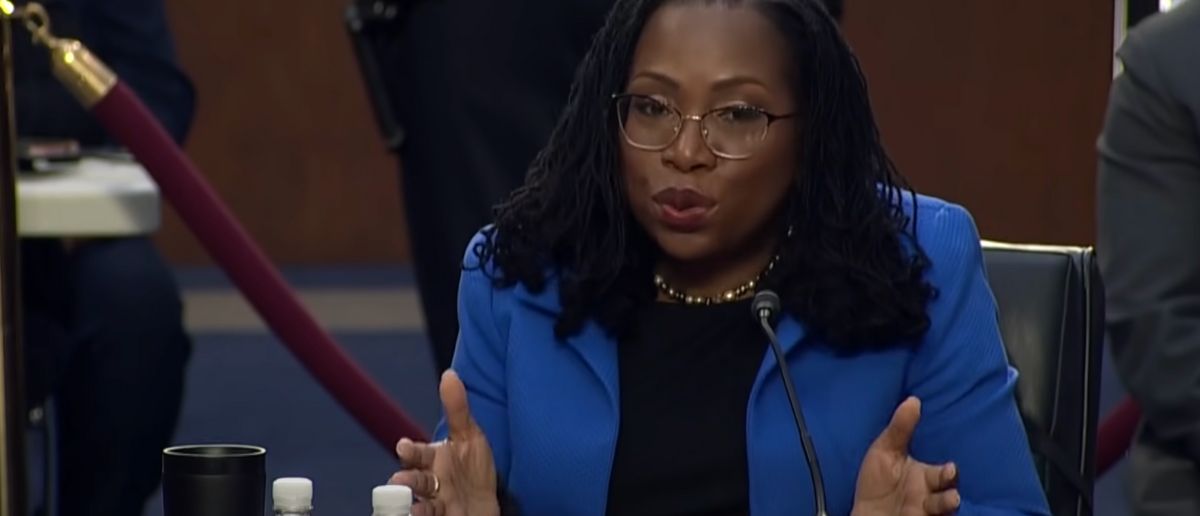
The Left has officially lost their minds. And it’s even infected the highest court in the land.
Because this Supreme Court Justice stunned everyone with a push for government enforced racism.
Justice Jackson’s Bold Analogy in SCOTUS Voting Rights Clash
In a heated Supreme Court session last Wednesday, liberal Justice Ketanji Brown Jackson likened racial gerrymandering fixes to ramps and accessibility upgrades sparked by the Americans with Disabilities Act (ADA), pushing back on challenges to Louisiana’s redrawn congressional maps.
“The idea in Section 2 [of the Voting Rights Act] is that we are responding to current-day manifestations of past and present decisions that disadvantage minorities and make it so that they don’t have equal access to the voting system, right?” Jackson said, grilling attorney Garrett Greim, who reps Louisiana voters claiming a court-mandated second majority-Black district breaches the 14th Amendment by overemphasizing race.
“They’re disabled,” the justice said of minority voters in the state.
Drawing Parallels to Civil Rights Milestones
Jackson highlighted a 2023 Supreme Court ruling on Alabama’s maps—which ruled the state had watered down Black voting strength—noting it “used the word ‘disabled’” for voters facing “processes [that] are not equally open.”
“What Congress is saying is if it is happening, which Section 2 gives us the tools to determine, you’ve got to fix it,” she argued.
Louisiana’s post-2020 Census map started with just one majority-Black district, but federal courts stepped in, ruling it flouted Section 2 of the 1965 Voting Rights Act. With Black residents making up about a third of the state’s population, the state’s two Democratic House members hail from those majority-Black seats.
“[M]y kind of paradigmatic example of this is something like the ADA,” Jackson said, linking the judicial remedy to the 1990 landmark law.
“Congress passed the Americans with Disabilities Act against the backdrop of a world that was generally not accessible to people with disabilities, and so it was discriminatory in effect because these folks were not able to access these buildings,” the justice explained.
“And it didn’t matter whether the person who built the building or the person who owned the building intended for them to be exclusionary. That’s irrelevant. Congress said the facilities have to be made equally open to people with disabilities if readily possible.”
“I guess I don’t understand why that’s not what’s happening here.”
Counterarguments and Conservative Pushback
Greim countered that forcing Voting Rights Act compliance in Louisiana relies on harmful stereotypes about minority voters.
“The difference is that the remedy under the ADA and other antidiscrimination laws is not stereotyping,” Greim said.
“It’s not race-based. I take your point. I take your point,” Jackson acknowledged. “But you’re saying then that if the problem of no access is about race, it’s just too bad because you can’t have a remedy that relates to race.”
Greim shot back: “Absolutely not … It’s whether the remedy that relates to race involves stereotyping voters and making assumptions about their politics and their views and their thoughts based on their race.”
“And that’s the problem. It doesn’t exist in those other civil rights statutes.”
The court’s six conservative justices signaled during arguments they’d curb race’s role in drawing district lines. A ruling is slated for June next year.





